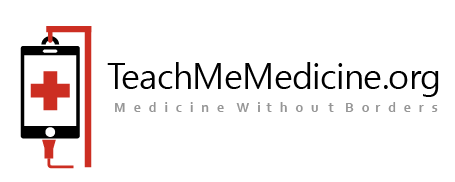Case Studies
Solving medical case studies plays a crucial role in developing and refining clinical skills, ultimately contributing to becoming a better clinician. Here are a few ways in which working on case studies can enhance clinical competence:
1. Diagnostic Reasoning: Medical case studies provide an opportunity to practice diagnostic reasoning, which involves systematically evaluating patient information, identifying potential diagnoses, and formulating differential diagnoses. By analyzing a variety of case scenarios, clinicians can hone their ability to consider different possibilities, weigh the evidence, and arrive at accurate diagnoses.
2. Clinical Decision-Making: Case studies present complex situations that require clinicians to make informed decisions regarding treatment options, diagnostic tests, and interventions. By engaging with diverse cases, clinicians can develop their decision-making skills, considering factors such as patient preferences, risk-benefit analysis, and evidence-based guidelines.
3. Application of Medical Knowledge: Case studies bridge the gap between theoretical knowledge and its practical application. They require clinicians to apply their understanding of medical concepts, guidelines, and best practices to real-world scenarios. Through this process, clinicians deepen their understanding of medical knowledge and develop the ability to adapt it to different clinical situations.
4. Problem-Solving Skills: Case studies often present challenging clinical scenarios or rare conditions, encouraging clinicians to think critically and creatively to find appropriate solutions. By tackling these complex cases, clinicians develop problem-solving skills, learn to navigate uncertainty, and become adept at managing complex patient presentations.
5. Multidisciplinary Collaboration: Many medical case studies involve collaboration with other healthcare professionals, such as specialists, nurses, or pharmacists. Through these collaborations, clinicians learn the importance of interdisciplinary teamwork, effective communication, and understanding the roles of different healthcare providers in delivering comprehensive patient care.
6. Exposure to Diverse Patient Presentations: Medical case studies expose clinicians to a wide range of patient presentations, including both common and rare conditions. This exposure broadens their clinical experience, expands their knowledge base, and prepares them to recognize and manage a variety of conditions in their future practice.
7. Ethical Considerations: Case studies often involve ethical dilemmas, requiring clinicians to navigate complex ethical issues, such as patient autonomy, confidentiality, informed consent, and end-of-life care. Working through these ethical considerations in a controlled environment helps clinicians develop ethical decision-making skills and a strong ethical framework.
8. Continuous Learning and Professional Development: Case studies encourage ongoing learning and professional development. They highlight areas where clinicians may need to deepen their knowledge, identify gaps in their understanding, and prompt them to seek out relevant research, guidelines, or resources to enhance their clinical practice.
By engaging in medical case studies, clinicians can refine their diagnostic skills, decision-making abilities, problem-solving capabilities, and ethical considerations. These experiences contribute to their overall clinical competence, making them better-equipped to provide high-quality care to their patients.
1. A 49 year old man is seen in the ER because of his sore finger.
2. A 36 year old woman presents to clinic because of nail changes
3. A 62 year old mother of six is seeing you in the clinic for back pain
4. A 63 year old man Is seen today for shoulder pain
5. A 29 year old man with history of right upper chest swelling
6. A 45 year old man is seen with heel pain and swelling.
7. A 78 year old woman seen to review her DXA Examination.
8. A 27 year old caucasian woman seen for a positive ANA test of 1:320
9. A 44-year-old woman presents with severe pain in her left upper back
10. A 55 year old man presents with dry hands
11. A 42 year old woman seen in the clinic with low White Blood Cell count
12. A 32 year old woman is seen in clinic with nail changes.
13. A 25-year-old woman presents to clinic with complaints of low back pain.
14. A 53 year old man presents to clinic with swelling of his hands and a uric acid of 12
15. A 58-year-old woman presents to clinic with difficulty walking.
16. A 49-year-old woman is seen with an abnormal Nerve Conduction Study.
17. A 55-year-old woman is seen because of her right knee is "giving out".
18. A 41-year-old man presents with severe pain and swelling of the right knee.
19. New onset of shoulder pain one day after cleaning his yard
20. A 74 year-old man presents to clinic with generalized pain
21. A 58 year old woman is seen in the ER because of back pain
22. Levofloxacin Complications!
23. A 57 year old man is seen because of Hemoglobin/Hematocrit of 19.2/55.9
24. A 47 year old man is seen because of left knee swelling
25. A 62 year old man is seen with an abnormal X-ray
26. Use of NSAIDs for treatment of Oateoarthritis.
27. A 35 year old woman is seen for persistent skin eruptions
28. A 38 year old woman presents with nail changes
29. A 57 year old woman seen with an ANA of 1:80
30. A 67 year old woman presents with back pain
